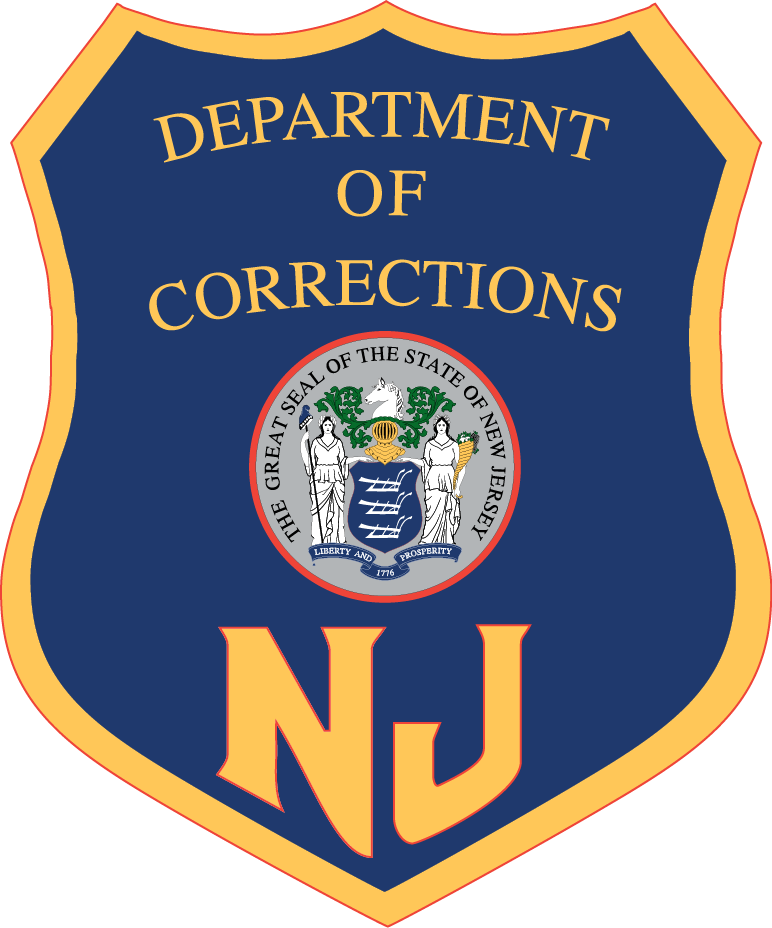The New Jersey Department of Corrections (NJDOC) prioritizes the safety of the incarcerated population, staff, and volunteers. In order to prevent the introduction of drugs into facilities, NJDOC is implementing a mail copying and screening program for all United States Postal mail for each of the nine correctional facilities.
To curb the introduction of drugs and contraband into facilities, all mail sent to incarcerated persons must be sent to an off-site processing center. This page is dedicated to informing the public about the most up-to-date policies and procedures regarding our mail operations.
Sending General Correspondence
All incoming correspondence must be sent to Pigeonly Corrections, a third-party mail vendor at the address below:
Incarcerated Person’s Name – SBI Number
Name of Facility – Facility Code
PO Box 96777
Las Vegas, NV 89193
Facility Codes:
Adult Diagnostic and Treatment Center - 1407
Bayside State Prison – 1403
East Jersey State Prison - 1401
Edna Mahan Correctional Facility – 1405
Garden State Correctional Facility - 1408
Mid-State Correctional Facility - 1404
New Jersey State Prison – 1400
Northern State Prison – 1406
South Woods State Prison – 1402
Special Treatment Unit – 1409
Pigeonly will process the following non-privileged mail:
- Letters (including drawings)
- Greeting cards
- Postcards
- 4x6 Photos (limit to 10 per parcel)
- Unbound newsletters
Accepted Mail Requirements:
- All mail must have a return name and address.
- Envelopes must be no larger than 4 in. x 9½ in.
- Letters must be on paper that is no larger than 8 ½ in. x 11 in.
- Greeting cards must be no larger than 5 in. x 7 in.
- Postcards must be 5 in. x 7 in.
- Photographs must be 4 in. x 6 in. (limit to 10 photos per parcel)
Pigeonly WILL NOT accept the following:
- Mail with glitter, rhinestones, stickers, or glued items
- Wax paper letters
- Shaped-cut photos or papers
- Letters written on tiny papers or sticky notes
- Crystals, religious tokens, coins, toys, key chains, stickers, artwork items
- Unused/blank envelopes, paper, stationary, and stamps
- Newspaper clippings
- Envelopes: Express or Priority/Hard Mail/Bubble type/Large thin paper envelopes
- Stapled items
- Books, booklets, magazines, or anything with a book spine
- Greeting cards that are overly thick, electronic, fold-out, 3D, have pop-ups, or are oversized.
- Polaroid photos and photographs from 3rd-party vendors (ie. Shutterfly)
- Official documents
- Bulk mail
- Documents you do not want destroyed, such as birth certificates, driver's licenses, social security cards, etc.
- Envelopes written in light or colored ink
- Illegible envelopes
- All forms of money (if unopened): Cash, checks, coins, gift cards, credit cards, etc.
Any prohibited mail or mail not adhering to the above requirements will be returned to the sender. Incoming parcels that contain any inappropriate materials will be rejected in their entirety. For example, if 10 photos are sent in and any of them contain inappropriate materials, then all 10 will be rejected.
Sending Publications, Periodicals, Magazines, Books
All publications and periodicals must be sent directly by the source of sale (vendor, distributor, publisher) to the NJDOC facility and WILL NOT be accepted by Pigeonly Corrections.
Publications and periodicals include:
- Books
- Magazines
- Publications with a spine
- Newspapers
Unauthorized publications determined to violate N.J.A.C. 10A:18-4 will not be accepted. Information on publications that violate N.J.A.C. 10A:18-4 can be found here: NJDOC UNAUTHORIZED PUBLICATIONS
*Effective immediately: The New Jersey Department of Corrections has temporarily suspended the acceptance of used publications by NJDOC facilities.
Privilege and Legal Mail
All privileged and/or official documents should continue to be sent directly to the facility.
Legal and privilege mail includes correspondence disseminated directly from:
- Courts and court staff
- Government office and or entity
- Attorney’s office
- Attorney General's Office
- Congress
- Embassies and consulates
- The United States Department of Justice
- State governors
- Members of the State Legislature
- Law enforcement officers in their official capacity
The front of the envelope must be clearly marked “Legal Mail,” “Attorney/Client,” “Confidential,” or similar designating the item as legal mail. Incoming mail readily identifiable as being from a court will be handled as legal mail, regardless of whether it has been marked legal mail.
Any privileged or legal mail received by Pigeonly Corrections will be returned to the sender.
For Attorneys
NJDOC requires all envelopes containing Privileged Correspondence from attorneys contain the following:
Full return address with the law office name and address;
Recipient address written as follows:
Incarcerated Person’s Name/ SBI Number
Institution
Institution Legal Mail Address
For Courts/Governmental Entity
The NJDOC requires all envelopes containing Privileged Correspondence from courts contain the following:
Full return address of the court or governmental entity
Recipient address written as follows:
Incarcerated Person’s Name/ SBI Number
Institution
Institution Legal Mail Address
Privileged Correspondence may only contain documents that originated from the sending attorney/court. Third-party original documentation is strictly prohibited in legal mail.
Frequently Asked Questions
Why is this new mail delivery process needed?
Postal mail remains a vulnerable access point to introduce contraband and illicit drugs into correctional facilities, which pose a significant health and safety risk. This new process will increase safety while allowing incarcerated individuals to continue corresponding with loved ones in a timely manner.
How does the new mail processing system work?
Non-privileged mail is sent via PO Box to a central processing facility operated by Pigeonly. All non-legal postal mail is opened, screened for contraband, and scanned into an electronic document that closely resembles the original hardcopy, including color.
The scanned mail is printed at Pigeonly’s processing facility and shipped to the State of New Jersey correctional facility indicated on the original envelope for distribution to the incarcerated recipients, eliminating the risk of contraband. The scanned mail is also shared electronically with the correctional facility through a secure dashboard for further screening and review.
How is legal mail handled?
Attorneys should continue to send legal mail directly to the State of New Jersey correctional facility for delivery to their incarcerated clients.
How long does it take for an incarcerated individual to receive non-privileged mail?
Within 24 hours of receipt, Pigeonly will open and scan incoming mail, share the electronic scan with the facility for further screening, then print and prepare the mail for shipment. Printed mail is delivered to NJDOC via Priority Mail and will be received within 1-3 days of shipment.
How long is mail held at Pigeonly’s processing facility?
Original copies of postal mail are held for 45 days. After this period, all mail will be destroyed.
How should I address an envelope for someone incarcerated at a satellite facility?
Mailers should address envelopes as indicated above, using the facility code of the parent facility.
I sent mail to an incarcerated person(s), and it was returned as undeliverable. Why?
It may have been returned because it violates the mail policy. All received mail will be inspected for prohibited materials. Mail that contains the following will be flagged and is subject to being marked as undeliverable: nudity, explicit sexual material, obscene material, violent language, promotion of violence, and contraband such as, but not limited to, weapons, drugs, or items of an unknown substance or odor.
I'm a formerly incarcerated individual and want access to all my scanned mail pieces. Can I get a copy of them?
After release, formerly incarcerated individuals can email support@pigeon.ly with their name/SBI, to download their scanned mail items for free.
I would like to request my original parcels (sender).
All mail is held at our mail processing facility for up to 45 days. If you would like to request your original parcel back, please email Support@pigeon.ly within that 45-day period, and we will return the parcel to the original sender as listed on the envelope.
 Official Site of The State of New Jersey
Official Site of The State of New Jersey

